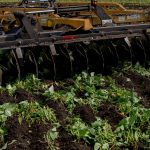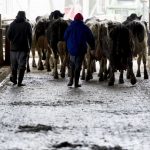
Speaking at last month’s DairySA Central Conference, ST Genetics’ genetics services leader Sara Westberry, said there was increased potential to improve profitability through the use of Chromosomal Mating.
Ms Westberry said Chromosomal Mating had been available for the past 1.5 years in the United States, and worked well in partnership with genomics.
She said often when selecting for the optimal traits in a sire, there was the increased risk of inbreeding.
While this did not always result in a negative impact in the offspring, she said it was important to be aware of the potential result.
Ms Westberry said Chromosomal Mating would look at the females and the herd and the bull team and assess the potential economic impact as a result of different levels of inbreeding.
“We don’t need to limit this to an arbitrary number, but we do need to be aware,” she said.
She said there has been an increase in inbreeding, coinciding with the update of genomics in the past five years.
“It is something we need to be aware of, as it can affect profitability,” she said.
Ms Westberry said for each key trait that farmers selected, such as milk, fat or protein, every 1 per cent of inbreeding had the potential to bring the profitability of the offspring down.
For an animal using the US Net Merit profitability index, this is decreased by $25.
But in some cases, inbreeding could lead to higher profitability.
“We could have a bull that has higher trait values and higher inbreeding, compared to a lower trait values and lower inbreeding,” she said.
She said in that case, the first bull would be the preferred sire.
With the technology developed in the US, Ms Westberry said much of the information is using US data, which. while similar to Australia, uses different reporting methods and weightings on indexes.
She said they have been in talks with DataGene about incorporating Australian information into their system.

























